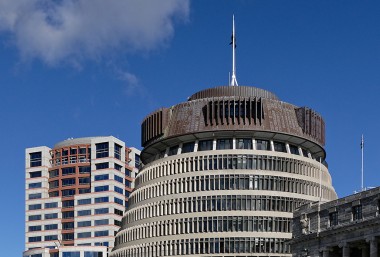On 11 December 2013, the Intellectual Property Office of New Zealand (IPONZ) issued a discussion paper seeking feedback on proposed regulations and fee changes. Submissions must be made to IPONZ by 24 January 2014.
The new regulations will affect all New Zealand applications filed after the 13 September 2014 date of commencement of the New Zealand Patents Act 2013 and all granted patents. Applications filed before this date will continue to be examined under the Patents Act 1953.
The proposal aims to align corresponding regulations in New Zealand and Australia. This alignment seems logical in view of ongoing attempts to create a Trans-Tasman Single Economic Market including the development of by IPONZ and IP Australia of a Single Application Process (SAP) and Single Examination Process (SEP), discussed below.
The following proposed changes may be of particular interest to you.
Fees
IPONZ proposes introducing several new fees including fees for examination, re-examination, and requesting restoration or revocation. Proposed fee increases apply to filing provisional patent applications and for making voluntary amendments.
Maintenance/renewal fees will be payable annually from the 4th anniversary of the filing date and a new fee for late payment has been proposed. These fees will also apply to patents that were granted under the 1953 Act.
Requesting Examination
Under the Patents Act 2013, an applicant must now request examination of a New Zealand application within three years of the complete filing date of an application, or within 2 months of receiving a Direction to Request Examination. For national phase entries of PCT applications, the international filing date is the complete application date.
IPONZ anticipates issuing Directions within 6 to 12 months of national phase entry. Therefore, examination in New Zealand will be well in advance of examination of any equivalent Australian application, where an applicant has five years to request examination and Directions to Request Examination are currently issuing only about 50 months after the priority date.
As in Australia, the application will lapse if examination is not requested within the two month period.
Responding to examination
IPONZ also proposes reducing the total time for prosecution of an application to 12 months from the date a first examination report issues (down from the current 18 months). Currently, IPONZ has some discretion to extend final deadlines. Discretionary extensions of time do not appear available under the new Act.
These timeframes match those provided in Australia for the same actions. Clearly New Zealand applicants will need to get used to a new system that requires a more rapid response to IPONZ than has been needed in the past.
New actions available to third parties
The proposed regulations specify how, under the Patents Act 2013, third parties will be able to:
- • ask the Commissioner to direct an applicant to request examination,
- • make third party submissions on an application during examination, and
- • request re-examination of an application.
Of particular note, third party submissions during prosecution, or requests for re-examination can trigger further examination reports containing new objections. IPONZ proposes allowing an applicant two additional months to respond to such new objections. The new 3rd party challenges supplement pre-grant opposition and post-grant revocation options, both of which are retailed in the Patents Act 13.
Single Application Process and Single Examination Process
A number of regulations proposed relate to the ongoing efforts of IPONZ and IP Australia to develop a Single Application Process (SAP) and a Single Examination Process (SEP). The misnamed SAP provides a portal thorough which a corresponding pair of applications can be simultaneously filed at IPONZ and IPAustralia. The SAP will not provide any reduction in official fees but reduced administrative costs should lower patent attorney fees for filing in both countries simultaneously.
Where corresponding applications have been filed in Australia and New Zealand, whether through the SAP or not, the applicant may request they be examined via the SEP. In this case, either an IPONZ or IP Australia examiner will examine both applications in accordance with the appropriate national laws. Applicants will not be able to select the office of examination.
While the SAP and SEP may provide advantages to applicants in some situations, lack of detail about how the processes will be implemented mean it is too early to advise on their use at this stage.
Further details will be released as these processes are developed.
Please contact us if you have any questions regarding the discussion document or would like our help in making a submission.
